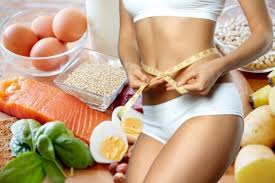To conquer that healed body with well-defined muscles requires a lot of training and a well-balanced diet. In the diet of those who want to become a “monster”, protein is the main ingredient, whether in meals or supplementation. But did you know that the excess of this enzyme in the body can be harmful to health and cause disease?
It is very common to see people who train daily to consume meat, eggs, chickpeas and quinoa in large quantities. This is because these foods are rich in proteins essential for muscle repair and stimulating hypertrophy. This macromolecule goes through a breakdown process in the gastrointestinal system and is absorbed as free amino acids in the intestine.
Athletes who consume little protein end up with a negative nitrogen balance, which results in catabolism (or disruption) of this enzyme and slower recovery. Over time, low intake results in decreased muscle mass, injuries, pain and intolerance to training. But, on the other hand, high consumption can cause cell aging.
The biologist and professor who led the research, Viviane Alves, points out that, when there is an excess of sporadic protein for the cell, it can manipulate well, but, if this is recurrent, there is no manipulation or adequate metabolism.
According to a report transmitted by Jornal Hoje, from Rede Globo, the scientist explains that this process is as if the cell had a breakdown and it started showing a certain state of exhaustion, which can cause the appearance of diseases traditionally associated with old age, like Alzheimer’s.

How much protein is needed for a healthy adult person?
Endocrinologist Priscilla Martins indicates that intake depends on the level of activity. In low-active people, the intake of 0.8 and 1.0 g / kg of protein per day is sufficient, but for those who practice physical activities, consumption of 1.2 to 2.0 g / kg is recommended. a day to build and maintain muscles.
An ideal meal for a 60 kg person, for example, needs to have 50g of rice / 10g of protein; 50g of beans / 5g of protein; 140g of chicken / 45g of protein. In this dish there are enough protein enzymes for a whole day. How about doing some math? How many eggs do you include in your daily meal plan, since one unit has 7g of protein?
Priscilla agrees that exaggerating the amount of protein is not necessary and can be harmful. However, according to her, several studies show that consuming a greater amount of protein (2.0 g / kg), for people who do not have contraindications, is safe and can be beneficial, especially for those who practice physical activities, children and the elderly. .
“It would be very hasty and irresponsible to state, with an experimental study, that eating more protein causes diseases related to aging. In my clinical practice, what I see is that people consume less protein than recommended and this has serious consequences such as sarcopenia (decrease in muscle mass) ”, contests the doctor.

Children and the elderly are those who most need to ingest protein in good quantity
The article transmitted by Jornal Hoje and Priscilla Martins affirm that the ingestion of these macromolecules in childhood and old age is very important, as they are phases of life that need greater help in building and rebuilding muscles, respectively.
“One of the biggest problems of the elderly population, which generates metabolic consequences, such as greater predisposition to diabetes and high cholesterol, and locomotion, such as decreased autonomy and increased risk of osteoporosis and fractures, is the loss of muscle mass. In childhood, amino acids from proteins are very important for the growth and development of muscles ”, he adds.
Regardless of age or lifestyle, it is essential that children, adults and the elderly have a balanced diet with all the nutrients, vitamins and proteins appropriate to each person’s needs. But, if there is a specific goal and it is necessary to consume larger or smaller doses of food in the daily diet, consult a nutritionist or a doctor. Have precise monitoring, take good care of your health and respect the limits of your body without exaggeration.




